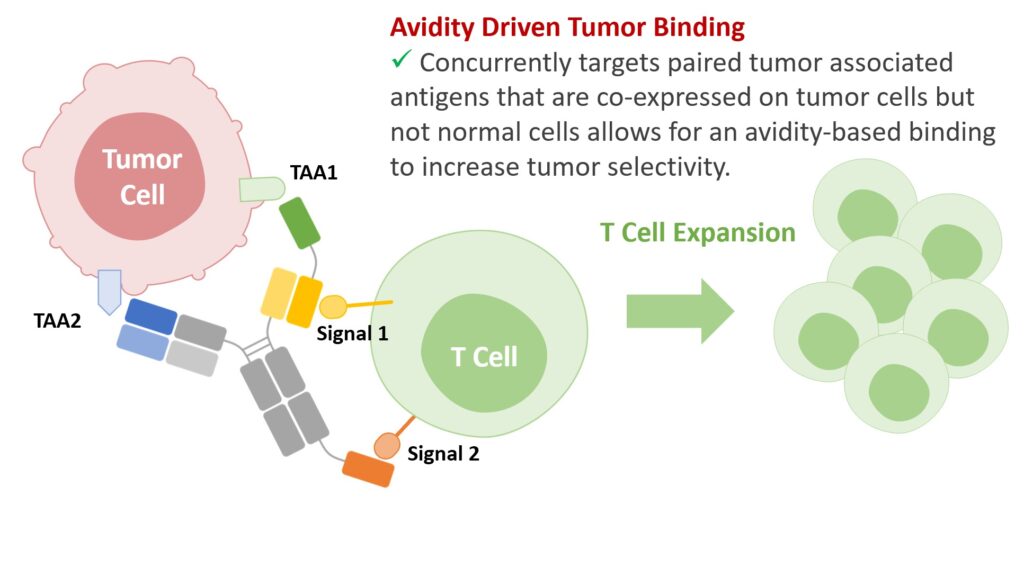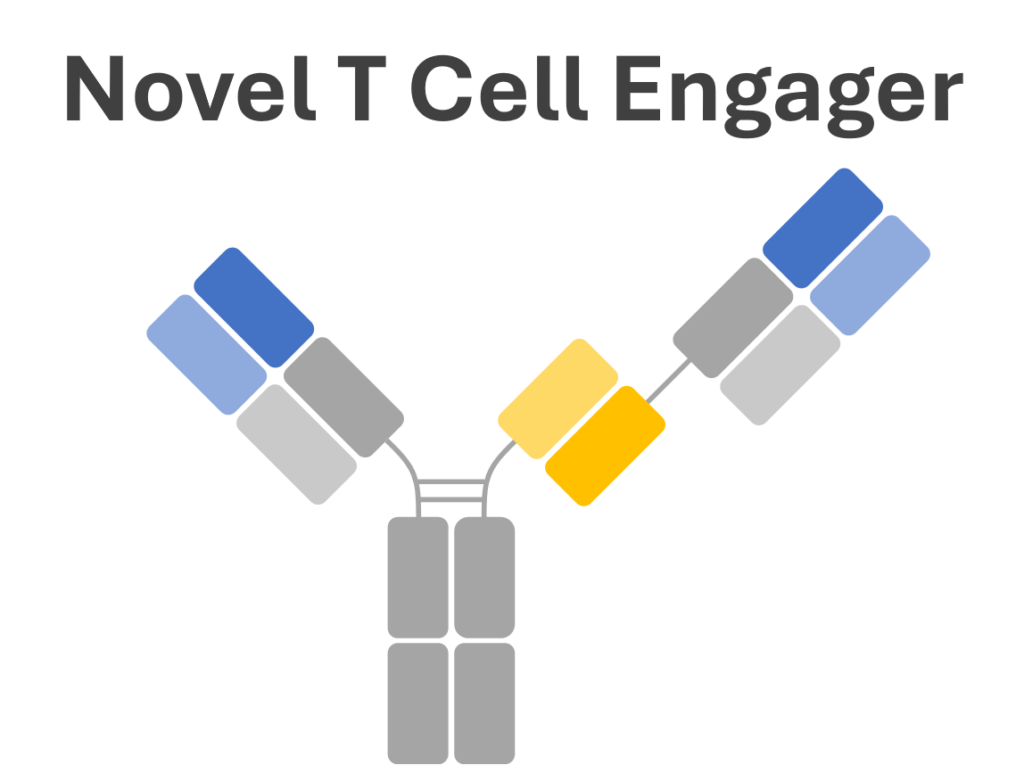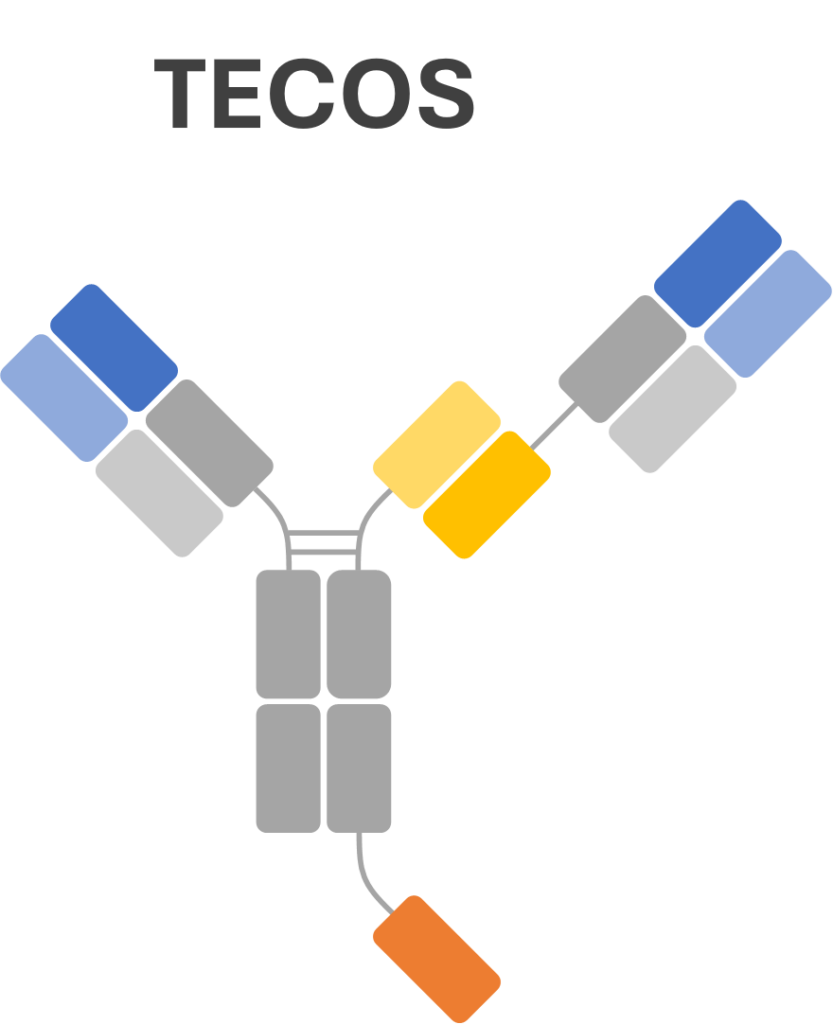Novel T Cell Engager
Traditional T Cell Engagers

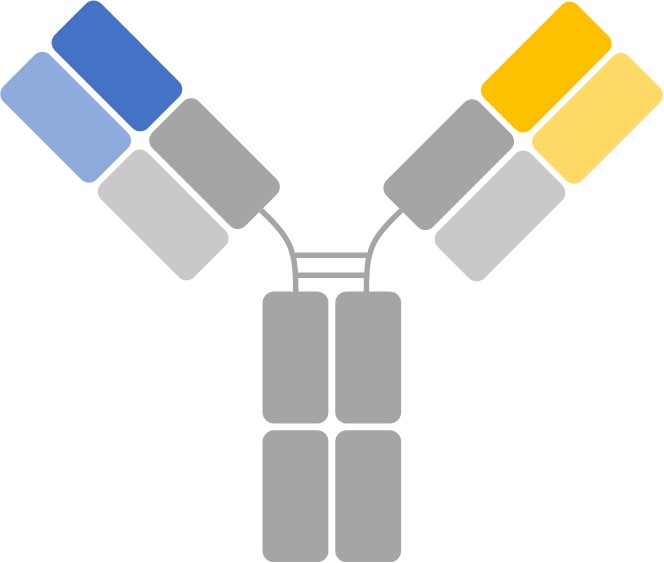
Monovalent Tumor Antigen Binding
- Insufficient tumor selectivity
High affinity CD3 binding
- High potency
- High toxicity
- Inadequate tumor biodistribution due to accumulation in secondary lymphoid tissues
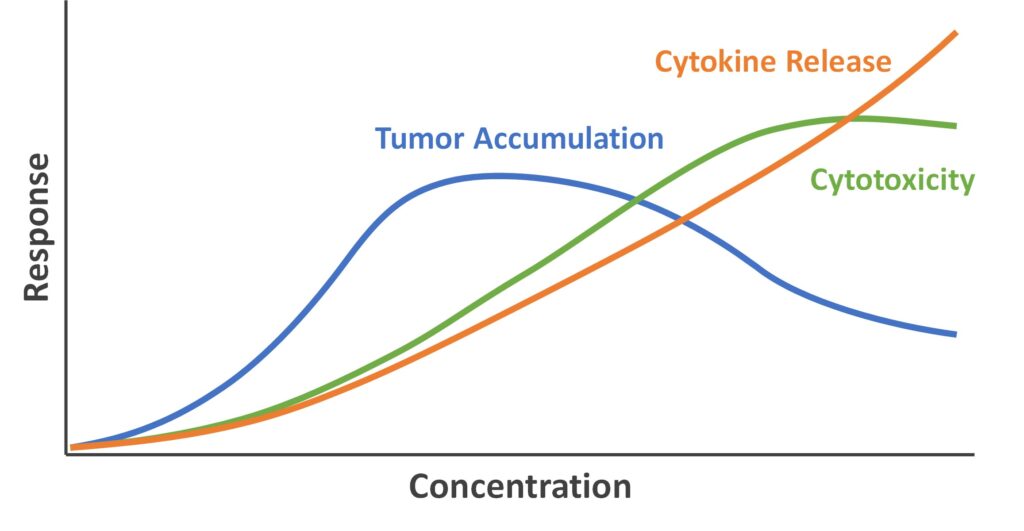
QLSF's Novel T Cell Engagers
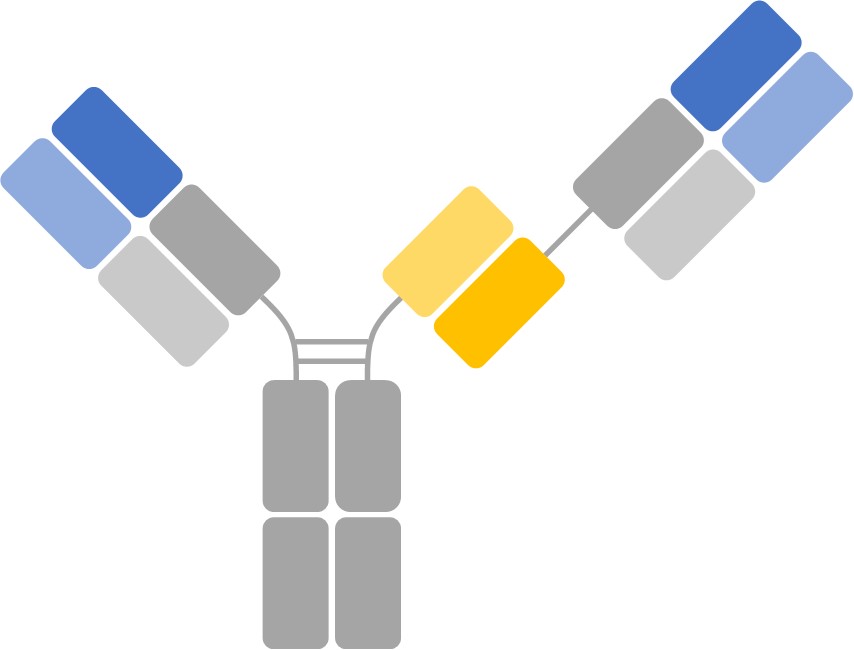
Bivalent Tumor Antigen Binding
- Avidity driven, high tumor specificity
- TAA dependent T cell activation
Reduced Affinity CD3 Binding
- High potency
- Reduced cytokine, mitigated safety risk
- Enhanced tumor biodistribution by reducing accumulation in secondary lymphoid tissues
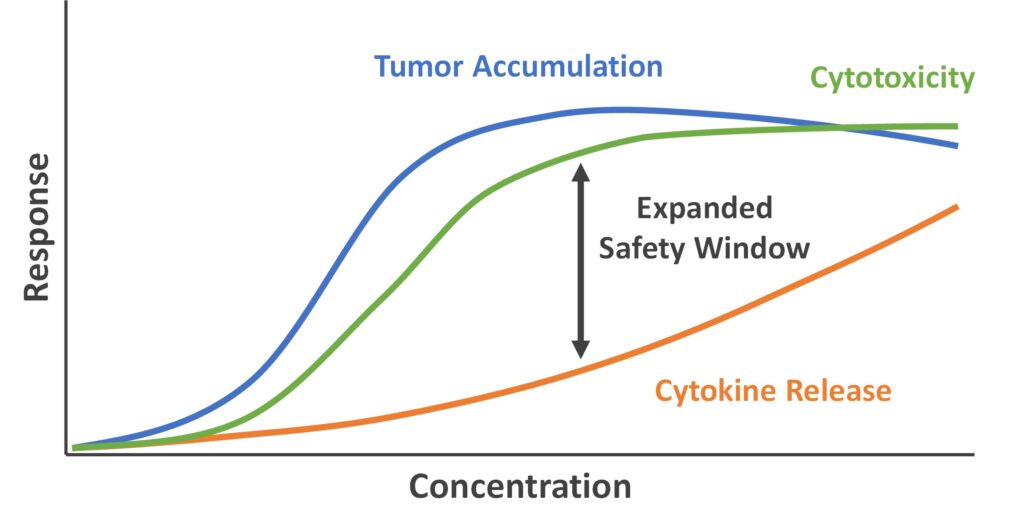
TEAD: T Cell Engager, Avidity Driven
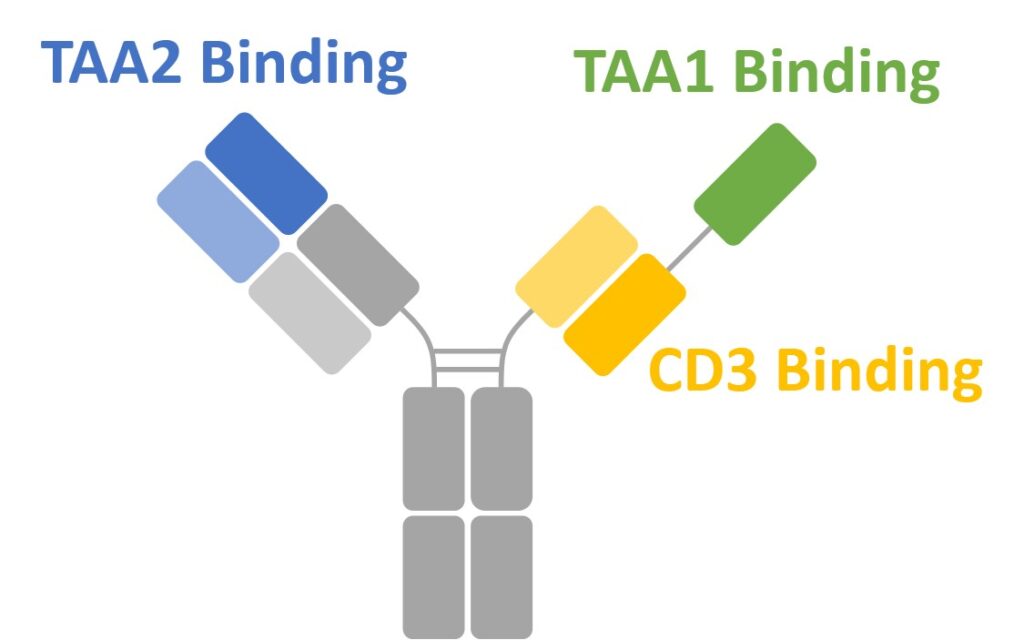
- Most tumor targeting antigens used on T cell engagers are tumor associated but not tumor specific
- Expression of tumor associated antigens on normal cells make it a challenge to overcome toxicity
- Therapeutically relevant dose often cannot be tolerated, leading to poor clinical response
TEAD concurrently targets paired tumor associated antigens that are co-expressed on tumor cells but not normal cells allows for an avidity-based binding to increase tumor selectivity.
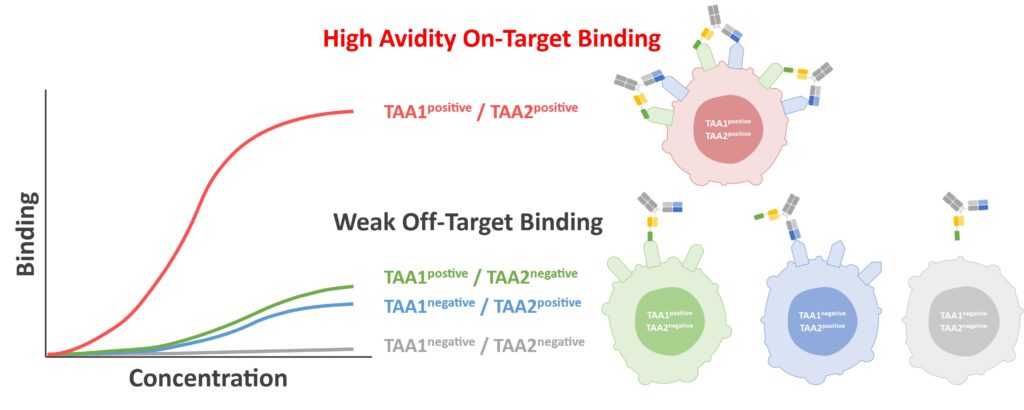
TECOS: T Cell Engager with Co-Stimulation
- T cell engagers targeting CD3 only provide one activation signal “Signal 1”.
- Anti-tumor T cell response requires additional signals through co-stimulatory or cytokine receptors.
- Lack of co-stimulatory signal within the tumor microenvironment leading to T cell anergy or exhaustion
TECOS provides a co-stimulatory signal “Signal 2” in addition to CD3 for invigorating and sustaining T cell response.
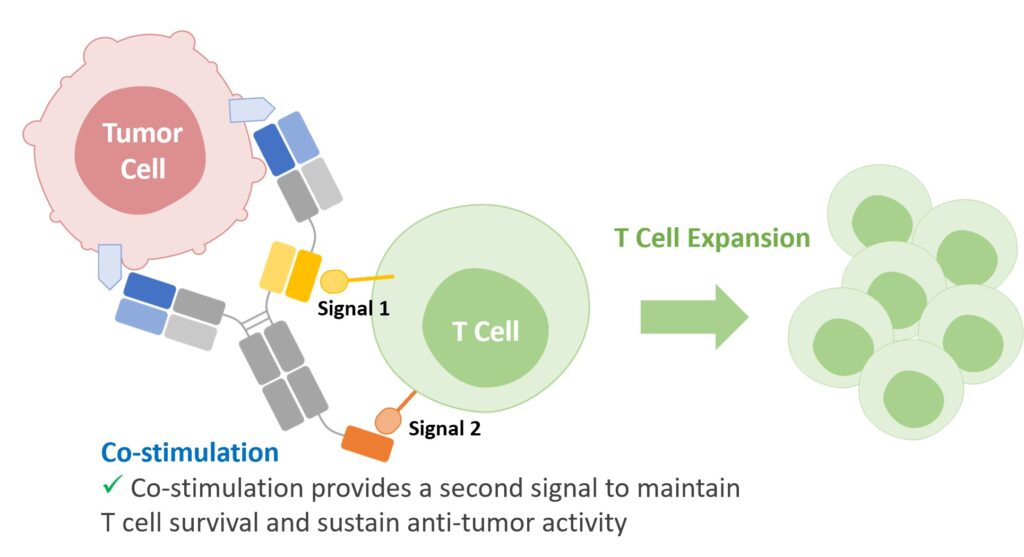
TECAD: T Cell Engager with Co-Stimulation, Avidity Driven
TECAD combines the dual tumor antigen targeting specificity of TEAD and the co-stimulation of TECOS to provide sustained activation signals and a more durable response with superior tumor specificity
